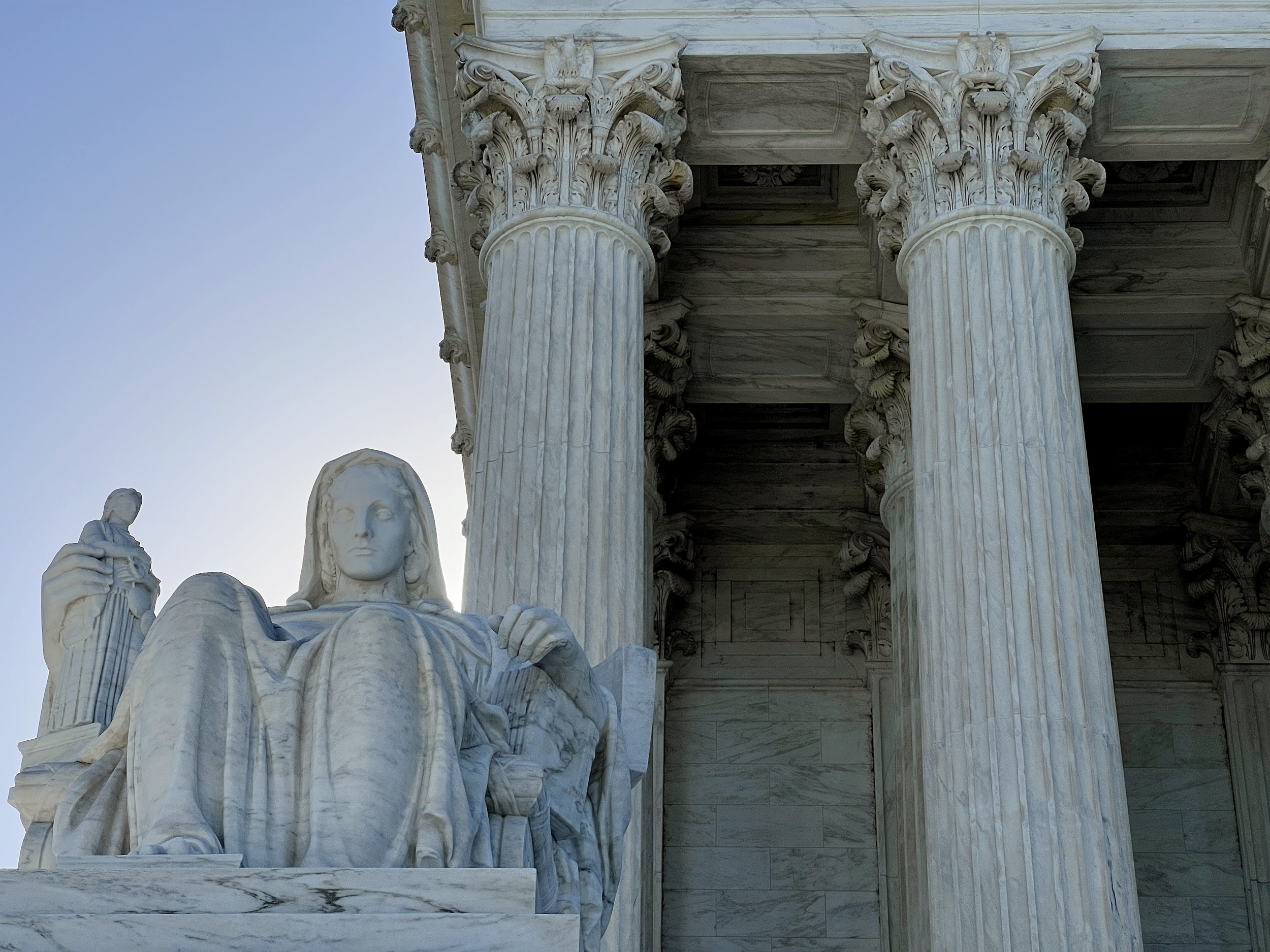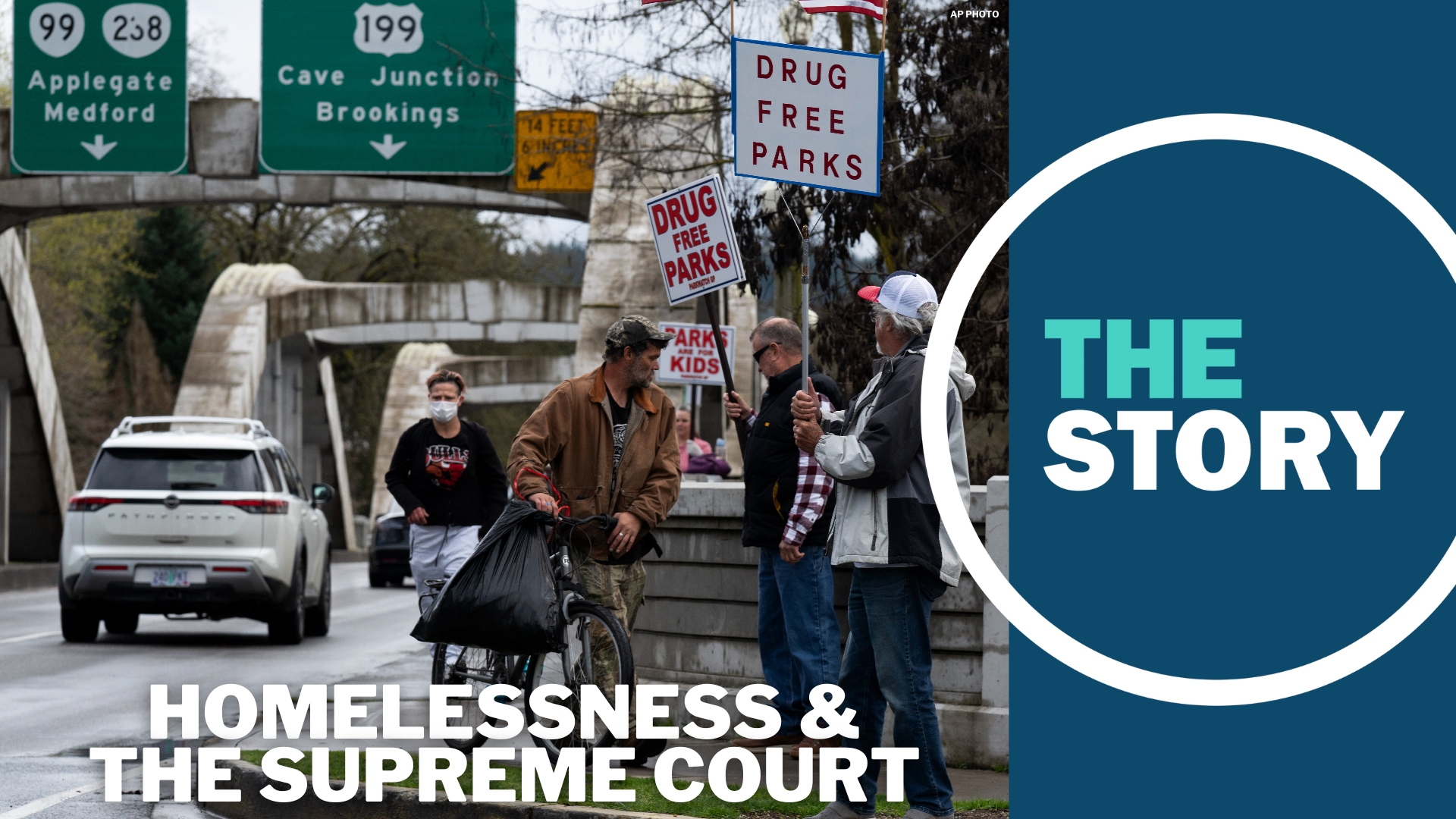Legal Precedents and Cases

The Grants Pass Supreme Court has established significant legal precedents and rulings that have shaped the legal landscape. These precedents have been instrumental in defining the boundaries of the court’s jurisdiction, the scope of its authority, and the principles that guide its decisions.
The Grants Pass Supreme Court recently ruled on a landmark case that could have significant implications for the future of environmental law. The case, known as scotus overturns chevron , involved the interpretation of a federal statute that regulates air pollution.
The court’s decision overturned a long-standing precedent that had given deference to agencies’ interpretations of ambiguous statutes. This decision could make it more difficult for agencies to enforce environmental regulations, and it could also lead to more litigation over the meaning of environmental laws.
One of the most notable legal precedents set by the Grants Pass Supreme Court is the case of City of Grants Pass v. Smith (1979). In this case, the court ruled that the city had the authority to regulate the use of public property, including parks and sidewalks. This ruling established the principle that local governments have the right to control the use of public spaces within their jurisdictions.
The Grants Pass Supreme Court has recently overturned the long-standing precedent of Chevron deference, a doctrine that gave great weight to agency interpretations of statutes. This decision marks a significant shift in the balance of power between the judiciary and administrative agencies, and it could have far-reaching implications for the regulation of industries such as energy and the environment.
Chevron deference overturned is a major victory for those who believe that agencies should be subject to more judicial oversight, and it could lead to a more active role for the courts in shaping regulatory policy.
Another important legal precedent set by the Grants Pass Supreme Court is the case of State of Oregon v. Jones (1982). In this case, the court ruled that the state had the authority to prosecute individuals for crimes committed on Indian reservations. This ruling established the principle that state courts have jurisdiction over crimes committed on Indian reservations, even if the perpetrators are not Native Americans.
The Grants Pass Supreme Court has recently made a landmark decision regarding homelessness, aligning with the broader national conversation on supreme court homeless. The court’s ruling has sparked debate and raised questions about the balance between individual rights and public safety in addressing homelessness.
Historical Context and Evolution of Precedents
The legal precedents set by the Grants Pass Supreme Court have evolved over time, reflecting changes in societal norms and values. For example, the court’s ruling in City of Grants Pass v. Smith was based on the principle that local governments have the right to control the use of public spaces. However, in recent years, the court has ruled that local governments cannot restrict the use of public spaces based on the content of speech.
The evolution of the Grants Pass Supreme Court’s legal precedents demonstrates the court’s commitment to adapting to changing circumstances while remaining faithful to the principles of justice and fairness.
The Supreme Court’s recent ruling in the Grants Pass case has far-reaching implications for environmental law. The Court’s decision to overturn the long-standing precedent of Chevron v. NRDC chevron vs nrdc overturned means that courts will now be more likely to defer to agency interpretations of environmental regulations.
This shift in the balance of power between the courts and agencies could have a significant impact on the implementation of environmental laws, including the Clean Water Act, which was at issue in the Grants Pass case.
Current Legal Issues and Controversies: Grants Pass Supreme Court

The Grants Pass Supreme Court is currently handling several high-profile legal cases that have drawn national attention. These cases involve complex legal issues and have the potential to set important precedents.
One of the most closely watched cases is State v. Smith, which involves a challenge to the state’s new law restricting abortion access. The law prohibits abortions after 20 weeks of pregnancy, except in cases where the mother’s life is in danger. The plaintiffs in the case argue that the law is unconstitutional because it violates the right to privacy guaranteed by the Fourteenth Amendment.
Another high-profile case before the Grants Pass Supreme Court is Jones v. City of Grants Pass, which involves a challenge to the city’s new ordinance banning panhandling. The plaintiffs in the case argue that the ordinance is unconstitutional because it violates the First Amendment right to free speech.
These are just two of the many important legal issues and controversies that are currently being handled by the Grants Pass Supreme Court. The court’s decisions in these cases will have a significant impact on the lives of people in Grants Pass and across the country.
Legal Arguments and Perspectives, Grants pass supreme court
The legal arguments in the State v. Smith case center on the right to privacy. The plaintiffs argue that the right to privacy includes the right to make decisions about one’s own body, including the decision to have an abortion. The state argues that the right to privacy does not extend to abortion, and that the state has a legitimate interest in protecting the unborn.
The legal arguments in the Jones v. City of Grants Pass case center on the First Amendment right to free speech. The plaintiffs argue that panhandling is a form of speech, and that the city’s ordinance banning panhandling is unconstitutional because it restricts free speech. The city argues that panhandling is not a form of speech, and that the ordinance is necessary to protect public safety and order.
Potential Implications and Outcomes
The potential implications of the State v. Smith case are significant. If the court rules in favor of the plaintiffs, it could overturn the state’s new law restricting abortion access. This would have a major impact on women’s reproductive rights in Grants Pass and across the country.
The potential implications of the Jones v. City of Grants Pass case are also significant. If the court rules in favor of the plaintiffs, it could overturn the city’s new ordinance banning panhandling. This would have a major impact on the lives of homeless people in Grants Pass and across the country.
The Role of the Grants Pass Supreme Court in the Legal System

The Grants Pass Supreme Court is the highest court in the state of Oregon. It has jurisdiction over all appeals from lower state courts and original jurisdiction over certain types of cases, such as those involving the constitutionality of state laws. The court is composed of seven justices who are appointed by the governor and confirmed by the state senate. The justices serve for six-year terms.
The Grants Pass Supreme Court plays a vital role in the legal system of Oregon. It is the final arbiter of state law and its decisions are binding on all lower courts. The court also has the power to review the constitutionality of state laws and to strike down those that it finds to be unconstitutional.
Interaction with Other Courts and Legal Institutions
The Grants Pass Supreme Court interacts with other courts and legal institutions in a number of ways. It hears appeals from lower state courts, including the Oregon Court of Appeals and the Oregon Tax Court. The court also has the authority to review decisions of administrative agencies, such as the Oregon Public Utility Commission and the Oregon Department of Environmental Quality.
In addition to its appellate jurisdiction, the Grants Pass Supreme Court also has original jurisdiction over certain types of cases. These cases include those involving the constitutionality of state laws, election disputes, and petitions for writs of habeas corpus.
Significance of the Court’s Decisions
The decisions of the Grants Pass Supreme Court have a significant impact on the administration of justice in Oregon. The court’s decisions are binding on all lower courts and they set the precedent for how state laws are interpreted and applied. The court’s decisions also have a national impact, as they are often cited by other state courts and by the United States Supreme Court.
The Grants Pass Supreme Court case brought to light the importance of deference to agency interpretations, a principle further solidified in the Chevron decision. The Chevron doctrine established a two-part test for courts to determine the validity of agency interpretations of ambiguous statutes.
This test has had a significant impact on administrative law, as it has given agencies more leeway in interpreting the laws they enforce. For more information on the Chevron decision, please refer to this article. The Grants Pass Supreme Court case continues to be a significant precedent in the area of administrative law.